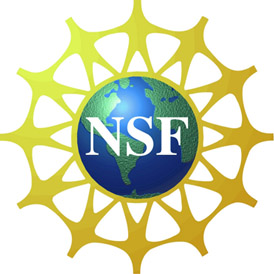The University of Toledo recently received a three-year research grant for more than $500,000 from the National Science Foundation to work with area high school students to improve their scientific inquiry skills.
 Faculty members in the departments of Geography and Planning and Curriculum and Instruction will begin work this summer at Scott High School to improve students’ spatial thinking and geospatial technology skills and also introduce them to potential careers in science, technology, engineering and math (STEM).
Faculty members in the departments of Geography and Planning and Curriculum and Instruction will begin work this summer at Scott High School to improve students’ spatial thinking and geospatial technology skills and also introduce them to potential careers in science, technology, engineering and math (STEM).
Dr. Beth Schlemper, UT assistant professor of geography and principal investigator on the project, said students will participate in summer workshops designed to highlight recent advances in geospatial technology, especially in relation to understanding their communities and preparing them for the STEM work force of the future.
“We hope the students gain greater knowledge of their community and also become aware of the careers they could have in this area of study,” Schlemper said. “Geospatial technology is one of the fastest-growing fields in the country, so there is amazing opportunity for these students to take advantage of that.”
Over a two-week period, students will research topics related to their neighborhoods and communities that are of interest to them using secondary data, field work and geospatial technology. The students will be organized into four groups led by UT professors and PhD students.
Dr. Kevin Czajkowski and Dr. Sujata Shetty of the Department of Geography and Planning and Dr. Victoria Stewart of the Department of Curriculum and Instruction will lead the groups in their research along with Schlemper.
Students will be guided through the scientific process of synthesis, analysis and interpretation, and input data they have produced through gathering geographic information into open-source mapping programs, producing maps for civic action they will present to key individuals and organizations in the area, Schlemper said.
Another goal of the project is to develop a book and curriculum based on the results of the project so that teachers across the country can use them to teach geography and geospatial technology, as well as related subjects in the physical and social sciences. Faculty members will integrate a mixture of topics into the curriculum that utilizes geospatial technology, various online and open-source mapping programs, and explore related career opportunities.
“We want something tangible and useful that we can share with other educators to show how the results of the research can benefit other students,” Schlemper said.